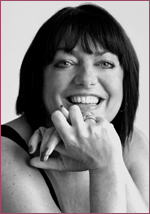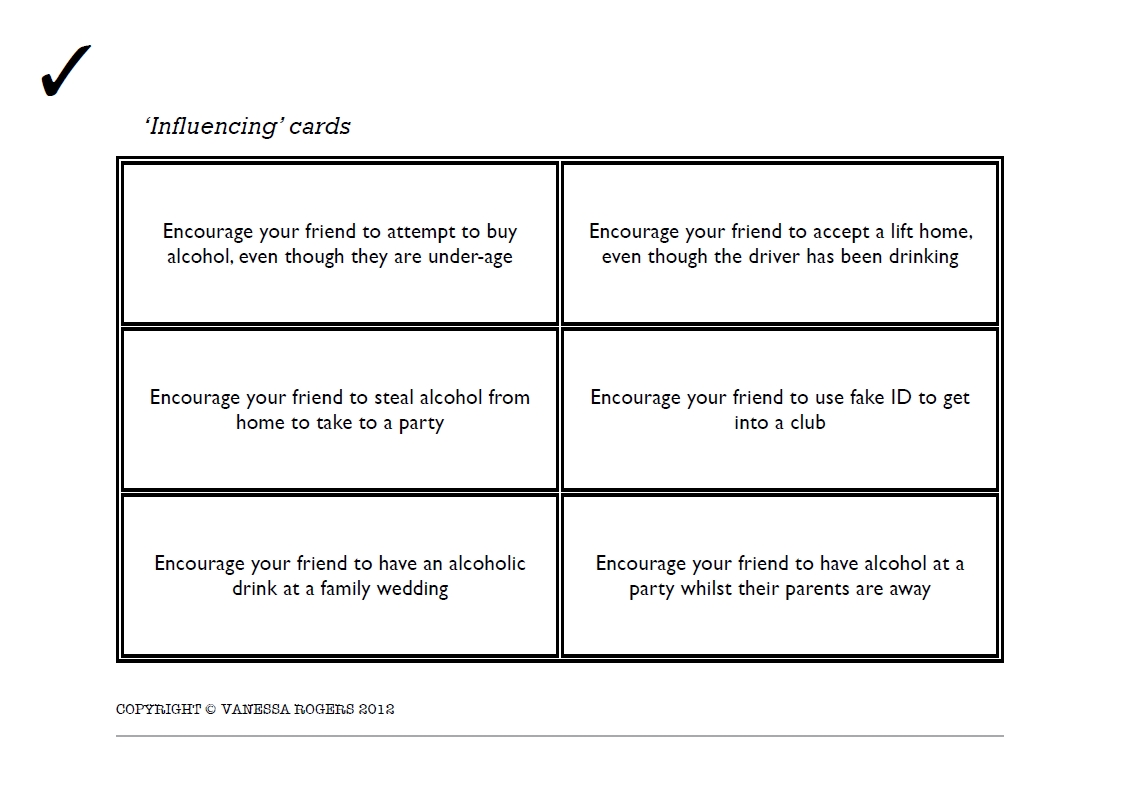 Vanessa Rogers is a qualified teacher and youth worker in the UK with over ten years’ experience both at practitioner and management levels. Prior to becoming a nationally acclaimed youth work consultant, Vanessa managed a wide range of services for young people including a large youth centre and targeted detached projects in Hertfordshire, UK.
Vanessa Rogers is a qualified teacher and youth worker in the UK with over ten years’ experience both at practitioner and management levels. Prior to becoming a nationally acclaimed youth work consultant, Vanessa managed a wide range of services for young people including a large youth centre and targeted detached projects in Hertfordshire, UK.
In this interview, Vanessa speaks about her new book, A Little Book of Alcohol, which is the first title in a set of books for those helping young people make informed decisions about alcohol, drugs and tobacco.
You’ve written a number of activity books for young people – why was it important to write one focused on alcohol issues?
Several years ago I took up a secondment opportunity within Hertfordshire County Council and became a Drugs and Alcohol Education Consultant to schools and education providers in the county. My job was to support teachers in developing an interesting PSHE (Personal, Social & Health Education) curriculum that would engage with even ‘hard to reach’ young people. It was also intended that consultants build their confidence to a point where they felt comfortable discussing alcohol issues with young people and able to provide good, impartial information that encouraged young people to make healthy choices based on facts, rather than demonising alcohol. I have also taken this approach when delivering the training that I currently offer to youth workers, social workers, and those working in the voluntary sectors, based around the book.
I was soon struck by how few resources I could find that focused solely on exploring alcohol issues, despite it being a major topic of concern both locally and nationally in the UK. The books that I did find either lumped alcohol in with other drugs, or were offering a message of abstinence, which I felt for most young people was a turn off to learning.
Because of this I began to create new activities, using a youth work approach, to engage young people in learning that was meaningful and relevant to their lives. I became certain that there was a real need for practical and informative activities, games and quizzes that encourage young people to stop and think a bit about the choices they make regarding alcohol, staying safe and the potential negative consequences, whilst still having fun. These became the basis for my book and grew from there.
What has your experience as a youth worker shown you about young people’s relationship to alcohol? What are the main issues young people face in relation to alcohol and drinking?
It would be easy to say that all the problems of underage drinking are caused by peer pressure, but it would be too simplistic to be true. There are lots of reasons that young people choose to drink alcohol, just as there are many reasons that adults do. It should also be remembered that not all young people, or adults, do drink.

My concern is that it is seen by many as normal and perfectly acceptable to drink vast quantities and then behave in a way that ranges from outrageous to deeply offensive. In fact, I have seen it lead to vulnerabilities and challenges that many young people are just not physically or emotionally equipped to deal with.
I think that young people are receiving mixed messages about alcohol; on the one hand, they are told it is bad for them and a major cause of anti-social behaviour; on the other, they see it portrayed all around them as a fun, recreational thing to do, with little or no consequences apart from a bit of a hangover.
Turn on the TV and the soaps, dramas and films are filled with people of all ages enjoying a glass or two – or ten. Drinking is seen almost as a 21st century rite of passage to adulthood, and young people are given the impression that it is ‘normal’ to spend Friday and Saturday night on a drinking spree with the sole purpose of getting drunk. There are even TV shows devoted to showing the sometimes embarrassing or disastrous results of binge drinking.
In real life of course the consequences of alcohol fuelled rages or drunken arguments are not so funny. Unwanted pregnancies, getting into trouble with the police, street violence, drunk driving and liver damage are certainly nothing to laugh about – nor are they just the domain of young people.
Our alcohol fuelled world must impact on children and young people who look to us to see what being a grown-up is all about. Unlike other drugs, alcohol is socially acceptable and almost expected in some instances. It is actually quite hard to be teetotal and socialise in pubs without attracting attention and unwanted questions about why you are refraining. If that is hard for an adult, consider how much harder it is for a young person to stand out from the crowd.
Do you think young people’s relationship to alcohol has changed over the last few years? How so?
I am not sure if the relationship has changed, but certainly research would suggest that overall drinking patterns have changed over the last twenty or so years, particularly amongst women.
Additionally, in the UK I think that the majority of young people will be provided with opportunities to drink from a relatively young age, including at family occasions, national and cultural celebrations and with peers. To cope with this I think it is vital that time is spent supporting them to develop the skills needed to make healthy choices.
Alcohol is also widely available in a way that it wasn’t for previous generations. From supermarkets to petrol stations, cheap bottles of wine, multi-packs of lager and brightly coloured ‘alcopops’ are sold, making it easier to buy and consume.
I would like to see more education for parents, too, about the levels of alcohol in some of the sweeter tasting drinks, and the fact that many of them contain the same amount of alcohol as a couple of shots of spirits! The parents I have worked with have been shocked to learn just how much alcohol they were giving to their sons and daughters to take to house parties.
Do you think young people are receiving enough education about alcohol issues? How might your book contribute to discussions around alcohol misuse and other issues?
My personal opinion is that often too much focus is placed on the danger of illegal substances, and too little on arming young people with the facts and skills to make good choices about alcohol, which nearly all of them will come into contact with as they grow up.
I think that the resources in my book are so successful with young people because they reflect real-life concerns and dilemmas, and reflect on the social consequences of drinking, as well as the health concerns.
If professionals want to talk to young people about alcohol they need to be honest about their own values and attitudes to it first. For example, what one person might consider to be a ‘heavy night on the tiles’ another might think of as perfectly acceptable. Once this has been done, it is easier to deliver sessions that are honest and open about alcohol, both the positive and negative aspects, to make it more real. I am not suggesting that they share inappropriate personal experiences, just that they try and remember how it feels to be a teenager facing some of their first evenings out.
Copyright © Jessica Kingsley Publishers 2012.